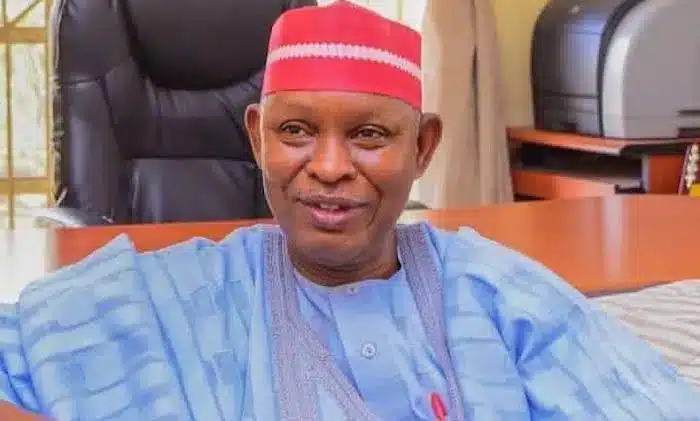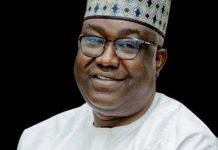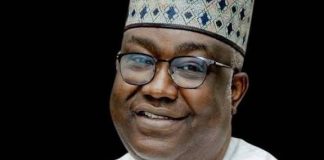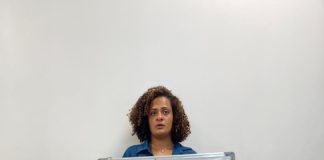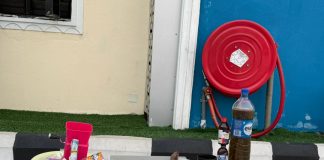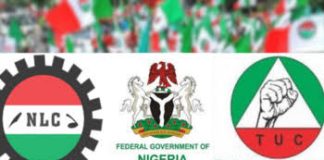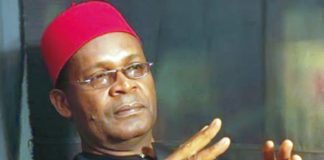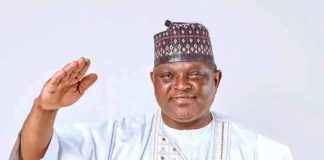🌿 Ruzu Non-Alcoholic Herbal Bitters
Ruzu Non-Alcoholic Herbal Bitters is a natural health supplement specially formulated to:
- ✅ Promote general wellness
- ✅ Detoxify the body
- ✅ Support the treatment of various ailments
Made from a powerful blend of 100% organic and medicinal herbs, Ruzu is completely alcohol-free, making it ideal for:
- 👪 All age groups
- 🌱 Health-conscious individuals
- 🌿 Anyone seeking non-alcoholic herbal remedies
Whether you're looking to boost your vitality, cleanse your system, or support healing the natural way, Ruzu Bitters offers a trusted herbal solution.
After a state of emergency was declared, Kano State Governor Mallam Abba Yusuf’s education program helped to turn around the state’s educational system.
In a year when more than a million Nigerian students took the Senior School Certificate Examination, Kano State distinguished itself by raising the standard of academic achievement to the top of the country’s performance rankings. According to the 2025 NECO results, Kano is now not just the leader of the federation but also at the center of a brand-new narrative that is one of rebirth, tenacity, and recognition for visionary leadership.
Many believed that last year’s declaration of a state of emergency in education by Governor Abba Kabir Yusuf was only bluster, the sort of political declaration that generally wanes when the campaigns are done. However, Yusuf did more than merely speak. By dedicating a record-breaking 30% of the state’s yearly budget to education—the highest percentage in Nigeria—and implementing an Education Recovery Plan that addressed every aspect of the system, he put his words into action.
Now, the outcome of that choice is more powerful than any campaign pledge. Of the 1,358,339 applicants nationally, 818,492 earned five credits in both English and mathematics, while 1,144,496 earned five credits in both subjects. However, Kano’s 68,159 applicants stole the show, surpassing both Lagos and Oyo to take the top spot in the country.
Governor Yusuf, however, didn’t stop there. He fueled Kano’s educational revolution on Thursday, September 18, 2025, by bringing 4,315 former BESDA volunteer instructors into permanent and pensionable employment as part of the intentional policy.
The governor’s words, “Dedication, integrity, and character-building must be your compass as you shape the future of our children,” were both hopeful and cautionary during the event held at the Sani Abacha Indoor Stadium, where he gave appointment letters to the new recruits.
This gesture was not unique. It expands on previous approvals, which included the hiring of 5,500 instructors in 2023, 5,632 in 2024, and a further 4,000 in May 2025 from the BESDA optional program.
It is perhaps significant that the governor has increased the number of educators even further with Thursday’s recruitment, strengthening the front lines of the fight against ignorance that Kano is committed to winning.
Yusuf announced the hiring of 2,616 more teachers, a ₦200 million car loan program, and the distribution of 300 computers and 444 motorcycles to improve school monitoring and assessment in an effort to further lubricate the reform apparatus. In order to safeguard schools throughout the state, the governor also ordered the reopening of Shehu Minjibir Boarding Primary School with 180 students, the conversion of another Ungogo school into a boarding facility, and the hiring of 17,000 watchmen.
The tale of this triumph is unquestionably etched in Kano’s classrooms with new paint, chalk dust, and rekindled optimism. Newly renovated classrooms at Rumfa College, where the learning atmosphere was once characterized by peeling walls and broken tables, now resound with hope.
“We feel empowered to teach for the first time in years,” senior instructor Malam Abdullahi said. “These outcomes are the result of intentional investment; they are not the result of chance.”
The change has also been felt by parents. The state now provides free supplies in place of the burdensome uniforms and textbooks. “I didn’t have to spend a single naira to get my daughter her uniform, books, and sandals,” said Aisha Ibrahim, a mother of three from Gwale. “I enrolled my two younger children using the money I had saved. I think Kano is shining today because of this.
The most proud storytellers are the pupils themselves. A group of exuberant graduates gathered at Government Girls Secondary School, Dala, to celebrate their accomplishments. Fatima Sulaiman, 17, who aspires to be a doctor, stated, “We had good teachers, new classrooms, and the encouragement to push harder.” “This success is Kano’s success, not just ours.”
More than just numbers, many see a rebirth in this result. The education system in Kano was in ruins due to years of neglect, as seen by the growing number of out-of-school children and the eroding infrastructure. The state’s public education system has been restored because to Governor Yusuf’s initiatives, which include school rehabilitation, teacher training, scholarship distribution, and the promotion of education for girls. Previously dubbed “Education Governor of the Year,” the Nigeria Union of Teachers now refers to this achievement as the “natural harvest of purposeful governance.”
Governor Yusuf, who was clearly thrilled, encapsulated the essence of the occasion.
“This exceptional achievement by our pupils demonstrates that Kano is on the right track, and our changes are obviously having an impact. “We will keep working tirelessly to ensure that no child in Kano is left behind, and education remains our top priority,” he stated.
The country is paying attention outside Kano. The achievement is “a wake-up call to other states,” according to Professor Grace Nnamani, an education expert at the University of Nigeria, Nsukka. “Kano has demonstrated that public schools in Nigeria can compete with the best anywhere in the country with significant investment,” she said. The model need to be imitated, not merely appreciated.
In a similar vein, Abuja-based policy expert Dr. Mohammed Adamu stated that the accomplishment highlights the need for Nigeria to address its education issue. “Kano’s success story serves as evidence that education needs to be funded—and financed with a purpose. He pointed out that this type of leadership ought to encourage a national reconsideration of how we prioritize the future of our children.
Kano’s victory in NECO 2025 is, in fact, a manifesto for Nigeria’s future rather than just a significant achievement. It demonstrates that if leaders view education as a sacred obligation rather than an afterthought, classrooms can be rebuilt, confidence can be restored, and greatness can be fostered. What transpired in Kano is not a miracle; rather, it is the sensible result of foresight, bravery, and investment.
Therefore, Kano has lit a candle that others can follow as Nigeria struggles with a failing public school system and millions of out-of-school children. The state is now a prime example of what may happen when leaders invest in the future of the country by fostering the minds of the youth.
After NECO’s results are released, the effects of this achievement won’t stop. They will have an impact on tomorrow’s communities, businesses, and colleges. They will mold a generation of medical professionals, engineers, educators, and idealists who will look back and say: Kano made the right decision in 2025 by deciding on education, and by doing so, it made the right decision for Nigeria and itself.

